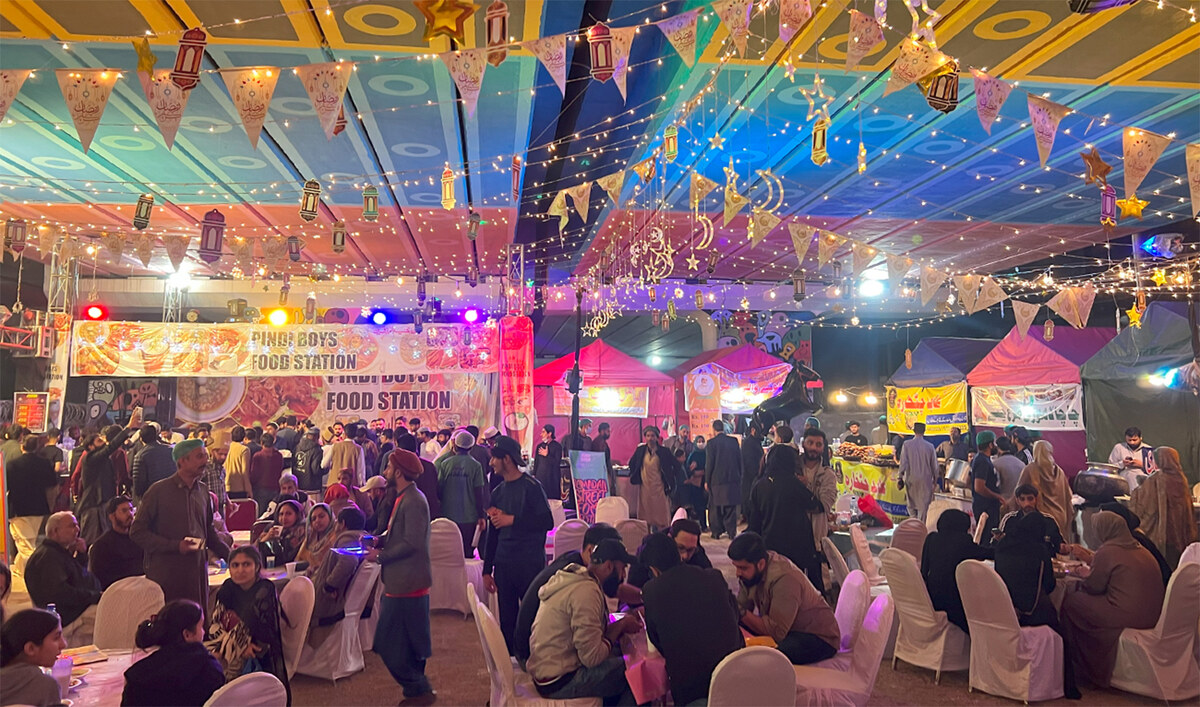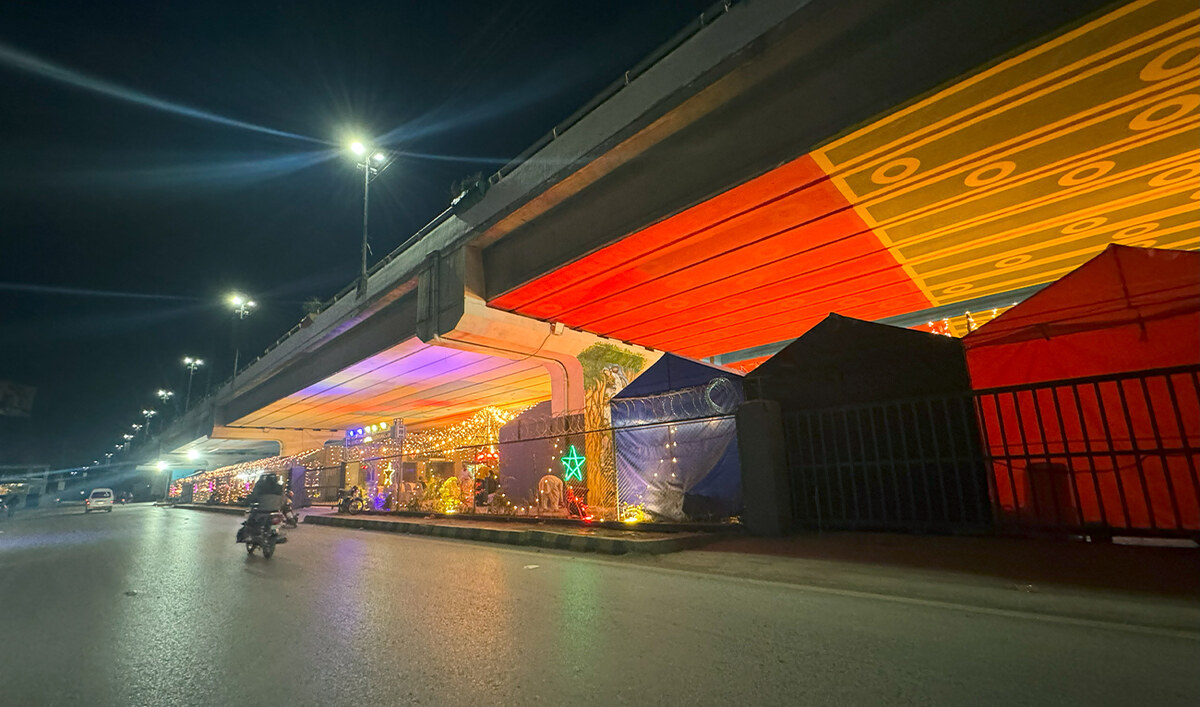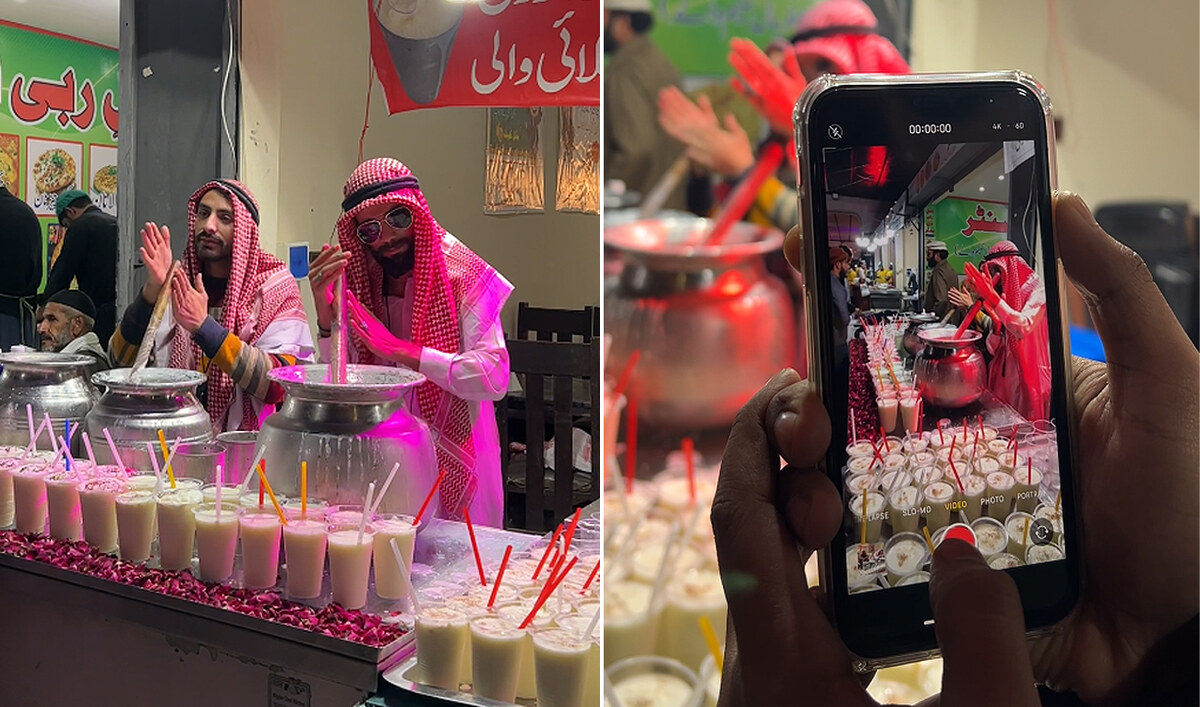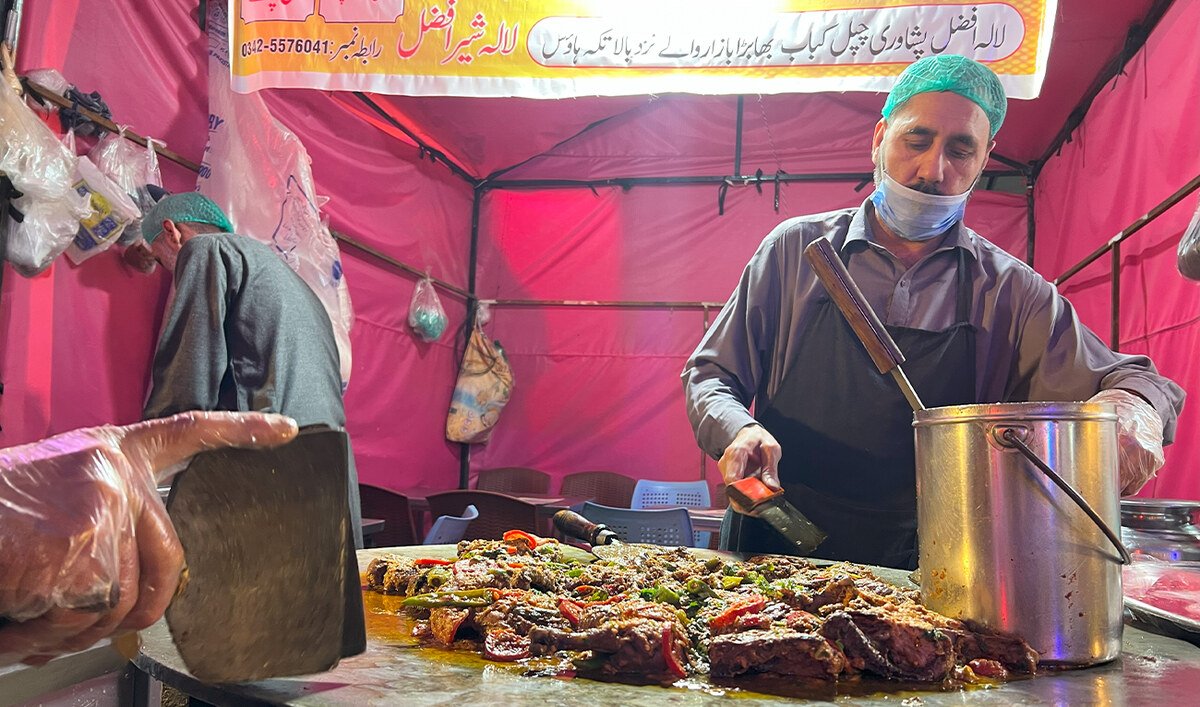RAWALPINDI: As visitors walk into the newly established ‘New Kartarpura Food Street’ at Chandni Chowk in the Pakistani city of Rawalpindi, they are immediately drawn to a unique sight: a group of men dressed in long, ankle-length robes typically worn by men in the Middle East and North Africa, their heads covered in ghutras, spinning lassi with wooden ladles in large metal pots.
The food vendor called Lahore 0 Kilometer is one of around 30 eateries that have come up on the new food street, seen as a more spacious, less crowded and family-friendly alternative to the historic Kartarpura Street in Rawalpindi.
Kartarpura Street was part of Rawalpindi’s Sikh neighborhood and the city’s main commercial area in the 19th century but over the past few decades has developed into a major food street and become famous for dishes such as nihari, a stew of tender beef or mutton meat with bone marrow, and siri paye, a traditional breakfast dish of cow or goat head and trotters. Lassi, both saltish and sweet, remains a key attraction, with a large number of vendors coming from Lahore and Gujranwala to sell the yogurt–based beverage, which is a staple at iftar and suhoor meals, especially when Ramadan falls in warmer months.
But customers and sellers alike have long complained of traffic congestion and overcrowdedness on the narrow street. This year, many of the stalls and food vendors have been shifted to the New Kartarpura Food Street, set up under the Chandni Chowk flyover on the first day of Ramadan. The market will continue to operate after the end of the holy month.
“Our main branch is in Kartarpura, but this venue has created a new trend, a proper space for families,” Abdul Latif Rashid, from the famed Kala Khan Nihari House, told Arab News. “Because of that, the [public] response here has been very good.”

Visitors are seen having suhoor meal at the New Kartarpura Food Street during Ramadan in Rawalpindi, Pakistan, on March 15, 2025. (AN photo)
The food street’s organizer, Raja Usama, said the idea for the new market was inspired by Ramadan food festivals in Dubai.
“Different kinds of food are available here,” he told Arab News. “Small, new businesses and young people are also being promoted. Families are being given a good environment.”

A motorcyclist rides past New Kartarpura Food Street in Rawalpindi, Pakistan, on March 15, 2025. (AN photo)
Muhammad Hamza at Lahore 0 Kilometer said people were coming from both Rawalpindi and Islamabad to try their lassi, which sells in seven flavors for between $0.71 to $2.85.
“We have great love for Arab countries. The attire I am wearing has been given a lot of respect by the [local] people, and I wish to wear the same attire when I visit Saudi Arabia,” Hamza told Arab News, as people stopped to take photos of him preparing lassi in his thobe and ghutra.

A collage of images shows vendors preparing lassi, a yogurt-based beverage, in Arab attire for suhoor at the Lahore 0 Kilometer in the New Kartarpura Food Street in Rawalpindi, Pakistan, on March 15, 2025. (AN photo)
For visitors like Mahnoor Kareem, a Chinese language instructor, the new food street provides much-needed respite to the overcrowded old Karparpura.
“Kartarpura in Rawalpindi is very famous, especially for sehri [suhoor], but we never went there because it’s always too crowded. Most people prefer to come here with their families,” she said. “We tried their paye and lassi, and we really liked it.”
Kanwal Zahra, who sells Pakistani cuisine, has also set up shop at the new food market.
“We serve traditional dishes passed down from our grandmothers, roti made from pure wheat flour, special jaggery and sugar tea, palak paneer, and lassi,” she said.

A food vendor prepares food for suhoor at the New Kartarpura Food Street in Rawalpindi, Pakistan, on March 15, 2025. (AN photo)
Besides traditional dishes, the food street also has more innovative offerings.
“Initially, people said they did not eat momos, especially boys,” dumplings vendor Meena Nabeel said. “But once they try, they come back with their friends and say that it is good, they like the taste. The filling and dough get a lot of praise. Our sauces also receive a lot of compliments.”















